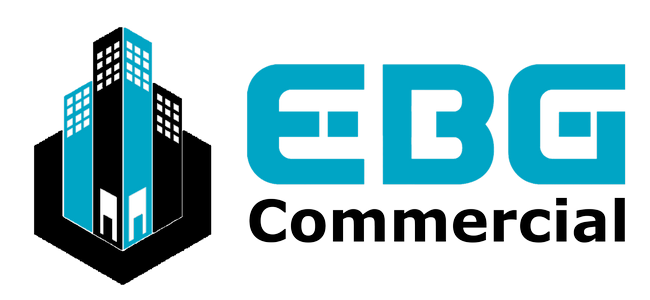Tenant Retention Strategies for Industrial Properties
In the competitive industrial property market, retaining tenants is critical to maintaining stable cash flow and minimizing vacancy rates. Unlike office or retail spaces, industrial properties often require significant customization for tenants, such as building out specialized infrastructure for manufacturing, distribution, or storage. As a result, industrial tenants tend to stay longer, but only if property owners and managers meet their evolving needs. Implementing effective tenant retention strategies can not only enhance profitability but also strengthen tenant relationships, ensuring long-term occupancy and reduced turnover.
Here are essential strategies for retaining tenants in industrial properties:
1. Prioritize Communication and Responsiveness
One of the most important aspects of tenant retention is maintaining open, transparent communication with tenants. Property managers and owners should be readily accessible to address concerns, answer questions, and resolve issues as quickly as possible.
- Regular check-ins: Schedule quarterly or bi-annual meetings to discuss tenant needs, upcoming maintenance, or any operational challenges they might face. This proactive approach allows you to address minor concerns before they escalate into significant problems.
- Prompt response to maintenance requests: Quick response times to maintenance or repair issues help show tenants that their business operations are a priority. Having a dedicated property management team, including on-call technicians, can reduce downtime and disruptions.
- Tenant satisfaction surveys: Periodically survey tenants to gauge their satisfaction levels and understand areas that may need improvement. Surveys can highlight potential pain points and offer insight into ways to enhance the tenant experience.
2. Offer Flexible Lease Terms
Flexibility in lease agreements can be a powerful tenant retention tool. Industrial tenants’ needs may shift over time, especially as businesses grow or adapt to changing market conditions. Offering flexible lease terms that accommodate these needs can build trust and long-term loyalty.
- Renewal incentives: Incentivize lease renewals by offering reduced rent escalations or favorable renewal terms. For example, consider offering a discount on common area maintenance fees for long-term tenants.
- Customizable lease options: Some tenants may need more space or different lease durations based on their business models. Being flexible with lease modifications, such as expansion rights or renewal options, allows tenants to adjust to their growth without feeling constrained by rigid contracts.
3. Invest in Property Maintenance and Upgrades
Tenants expect industrial properties to be functional, safe, and well-maintained. Neglecting basic maintenance can lead to tenant dissatisfaction and eventual turnover. Regularly investing in both preventive maintenance and property upgrades not only ensures that the building remains attractive and efficient but also signals to tenants that the landlord is committed to maintaining a high standard of care.
- Routine inspections: Conduct regular inspections of critical systems such as HVAC, electrical, plumbing, and roofing to ensure they are functioning optimally. Address any wear and tear issues before they become major problems.
- Upgrades and modernization: Keep up with technological and environmental advances. For instance, improving energy efficiency by installing LED lighting, upgrading insulation, or adding solar panels can reduce operating costs for tenants. These upgrades also demonstrate your commitment to sustainability, which may be a deciding factor for many businesses.
- Curb appeal: Don’t forget the exterior! Ensure landscaping, parking lots, and signage are well-maintained and visually appealing. This attention to detail reflects positively on both the property and the tenants occupying it.
4. Enhance Security Features
Security is paramount for industrial tenants, especially those handling high-value inventory or sensitive materials. Ensuring the property has robust security measures in place can give tenants peace of mind and increase their willingness to remain long-term.
- 24/7 surveillance: Installing modern surveillance systems, including CCTV cameras, motion detectors, and alarm systems, provides around-the-clock security coverage.
- Access control systems: Implementing secure entry systems, such as keycard or biometric access, can help regulate who enters the property, reducing unauthorized access and theft risks.
- On-site security personnel: Depending on the size and nature of the industrial property, consider hiring security guards or contracting with a reputable security firm to patrol the premises and offer real-time support in emergencies.
5. Foster a Strong Tenant-Landlord Relationship
Developing strong, positive relationships with tenants goes a long way toward fostering loyalty and retaining tenants over the long haul. If tenants feel respected, heard, and valued, they are more likely to remain committed to the property even when faced with alternatives.
- Personalized attention: Understand the unique needs and preferences of each tenant. A personalized approach can lead to stronger relationships. For example, celebrate a tenant’s company milestones, such as anniversaries or product launches, with small gestures like handwritten notes or tokens of appreciation.
- Create community events: Hosting tenant appreciation events, such as barbecues or coffee mornings, can help build a sense of community among your tenants. These events foster networking opportunities and create a more pleasant work environment, which encourages tenants to stay long-term.
6. Proactive Problem Solving
Anticipating and solving potential problems before they become major issues can help avoid tenant dissatisfaction. Property managers should be vigilant and look out for common issues that may arise in industrial settings, such as poor air quality, pest infestations, or inadequate loading dock space.
- Address concerns early: If you notice a recurring complaint from multiple tenants, take action before it becomes a major disruption. For instance, if several tenants mention parking issues or loading dock congestion, consider reconfiguring the space to optimize efficiency.
- Tailor problem-solving approaches: Some tenants may have unique needs, such as specialized power requirements or increased truck traffic. Be proactive in assessing their current and future operational requirements and offer solutions that align with their business needs.
7. Provide Value-Added Services
Tenants are more likely to stay if they perceive value beyond the physical space they rent. Offering additional services can set your property apart from competitors and create a “stickiness” factor that encourages tenants to renew their leases.
- Shared amenities: Consider offering shared conference rooms, break areas, or fitness facilities that tenants can use. For larger industrial properties, creating a hub of shared services can enhance the overall tenant experience.
- On-site property management: Having an on-site management team can be highly attractive to tenants, ensuring that any issues are addressed immediately. On-site managers also provide a sense of community and stability.
- Professional development opportunities: Offering tenants educational resources, workshops, or networking events tailored to their industries can help them grow their businesses, furthering their investment in your property.
8. Understand and Adapt to Market Trends
Keeping an eye on broader industry trends allows property owners and managers to adjust their strategies as needed. For example, the rise of e-commerce has led to increased demand for last-mile distribution centers. Adapting your property to accommodate these trends—such as modifying floor plans or adding more loading docks—can ensure your tenants’ evolving needs are met.
- Market research: Regularly assess market conditions, tenant expectations, and competitor offerings to ensure your property remains competitive.
- Technological advancements: Embrace new technologies, such as smart building systems, which can help tenants optimize their operational efficiency.
Conclusion
Tenant retention in industrial properties requires a proactive, hands-on approach. By prioritizing communication, offering flexible lease terms, maintaining and upgrading the property, enhancing security, and providing value-added services, property owners can significantly improve tenant satisfaction and loyalty. In turn, this reduces vacancy rates, minimizes turnover costs, and ensures long-term financial stability. Industrial tenants are often deeply integrated into their spaces, and a commitment to meeting their needs can result in extended lease agreements and mutually beneficial relationships for years to come.


